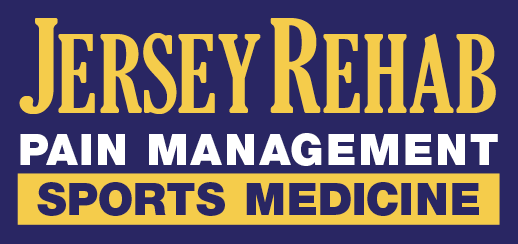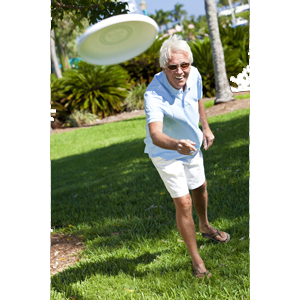From the Doctor’s Desk: Staying Fit After 50
Although women and men who have passed the 50 year mark face different health challenges, both sexes will find that small adjustments will make big impacts in feeling better and living healthier. For example, it’s more difficult for men over 50 to work off that Sunday bucket of wings and a sixpack; while 50+ women are dealing with gaining weight just thinking about food. Here are a few lifestyle choices you can make:
– Stay sharp
Work your brain! Crossword puzzles, word games, brain teasers – they really do help. Eat more fish, vegetable oils and nuts – a recent study found that a Mediterranean-diet of healthy unsaturated fats and few saturated fats reduced the risk of mental decline. which includes plenty of fruits, vegetables, whole grains, moderate wine consumption and olive oil) was associated with longer survival and lower risks of cancer and heart disease.
– Keep your bones strong
Osteoporosis is not just a woman’s disease. Men lose bone mass after age 50, too. You may benefit from supplemental calcium and probiotics in the diet. Health experts are now saying that probiotics may help treat osteoporosis, in addition to aiding digestive health.
– Stick with water
Although soda may be more satisfying to your taste buds, the consequences to your future health may not be worth the extra flavor. New research suggests that 180,000 deaths per year may be related to sugary soft drinks. For men specifically, soda may increase your risk for prostate cancer on top of contributing to weight gain and the risk of diabetes. If you want to flavor your water, add some lemon, berries, or add a little fizz with carbonated water.
– Add B12 to your daily supplements
B12 supports healthy nerve and blood cells and is needed to make DNA. B12 is primarily found in fish and meat. It is bound to a protein in food and must be released from it by digestion in the stomach. As we age, our stomach acid decreases, making it more difficult to absorb nutrients such as B12.
– Women: Check your multivitamin for Iron – and toss it if it has it. Pay more attention to calcium and vitamin D
The average woman experiences menopause around age 50. After menopause, the need for iron decreases to about 8 mg of iron a day. While the body can’t live without iron, an overabundance can be dangerous as well. Iron toxicity can occur because the body doesn’t have a natural way to excrete iron; too much can cause liver or heart damage and even death. Postmenopausal women should take iron supplements only when prescribed by a physician. As a result of gastric and hormone changes, D levels and calcium absorption tank around age 40. Evidence shows that postmenopausal women have an increased risk of osteoporosis because of their lack of estrogen. To make matters worse, after 50, the body will break down more bone than it will build. Some delicious sources of calcium include sardines, spinach, broccoli, kale, and low-fat or fat-free milk and yogurt.
Contact Us:
Essex County
15 Newark Avenue
Belleville, NJ 07109
973-844-9220
Bergen County
87 Summit Ave
Hackensack, NJ 07601
Monmouth County
45 West River Road
Rumson, NJ 07760
732-345-8535
Bronx
3146 E. Tremont Ave.
Bronx, NY 10461
718-792-6503
Manhattan
1045 Park Ave.
New York, NY 10028
718-792-7014

